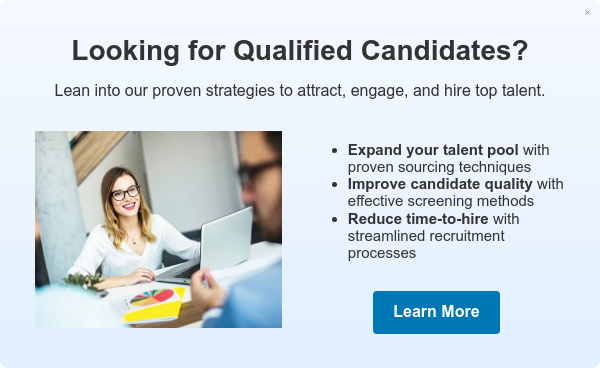In manufacturing, staffing success isn’t just about filling open roles, it’s about placing the right people who can keep production moving.
A well-qualified candidate on paper doesn’t guarantee a good fit on your plant floor, and a mismatched hire can cost far more than just time.
Why Surface-Level Recruiting Doesn’t Cut It
Today’s manufacturing roles often demand a hybrid of mechanical know-how and digital fluency. A general job description can’t capture the full picture, like which programming languages are used in your automation systems, or what kind of diagnostics your team runs on your equipment.
Without this context, even highly qualified candidates can fall short.
They may know the theory but not the tools you rely on every day.
What “Truly Understanding Your Plant” Looks Like
1. Understanding Your WorkflowA staffing partner who understands how tech supports each phase of production can better identify the blend of mechanical and digital skills needed for each role.
They can distinguish between a technician who can troubleshoot a basic motor and one who can read PLC code, interpret sensor data, or work with predictive maintenance tools.
2. Knowing Your Culture
As your workforce becomes more tech-integrated, cultural fit now includes digital mindset.
Does your team embrace new tools or resist them? Is your plant culture more data-driven or intuition-led?
Staffing firms who spend time in your environment—talking to supervisors, walking the floor, reviewing dashboards—gain a better understanding of the digital literacy your team expects. They can screen for candidates who don’t just tolerate technology but use it to improve outcomes.
3. Aligning with Skill LevelsTechnical expectations vary significantly from plant to plant. One facility may need someone who can operate CNC machinery with basic digital interfaces; another may require a technician who understands SCADA systems or MES platforms. Some plants prioritize OSHA compliance, while others require deep familiarity with ISO or FDA data reporting standards.
When staffing firms understand your safety protocols, software stack, and skill benchmarks, they can screen more effectively—and ensure candidates are not just qualified but prepared for your specific systems and standards.
4. Planning for Innovation Cycles
Whether you're rolling out a new ERP system, scaling your robotics, or integrating AI into your quality control process, a staffing partner who knows your roadmap can help you build the right talent pipeline.
Rather than reacting to change, you’ll have talent ready as soon as new systems go live-people who can lead transitions, train others, and hit the ground running in tech-enhanced roles.
The Results: What You Gain
When your staffing partner understands both your plant and your tech evolution, the results are game-changing:
- Faster time-to-fill for specialized, tech-enabled roles
- Fewer early exits due to skill mismatches or digital discomfort
- Reduced downtime due to better troubleshooting and onboarding
- Stronger teams that balance mechanical and technical expertise
- Less micromanagement—your partner anticipates needs before they arise
- More innovation readiness with talent that supports transformation
- Higher confidence in hiring during times of tech change or upskilling
Building the Right Relationship
The best operational results come from a true partnership, not a transactional relationship. Manufacturers that get the best staffing outcomes treat their partners as strategic collaborators. They invite them into discussions about upcoming tech investments, give visibility into skill gaps, and provide feedback on how well hires are adapting.
The best staffers, in turn, act as extensions of your HR and operations teams.
Final Thoughts
As manufacturing becomes more technology-driven, the stakes in staffing get higher.
Choose a staffing partner who understands your plant from the inside out-its people, its processes, and its technology. When you do, hiring becomes easier, adaptation gets faster, and your operation runs stronger than ever.


